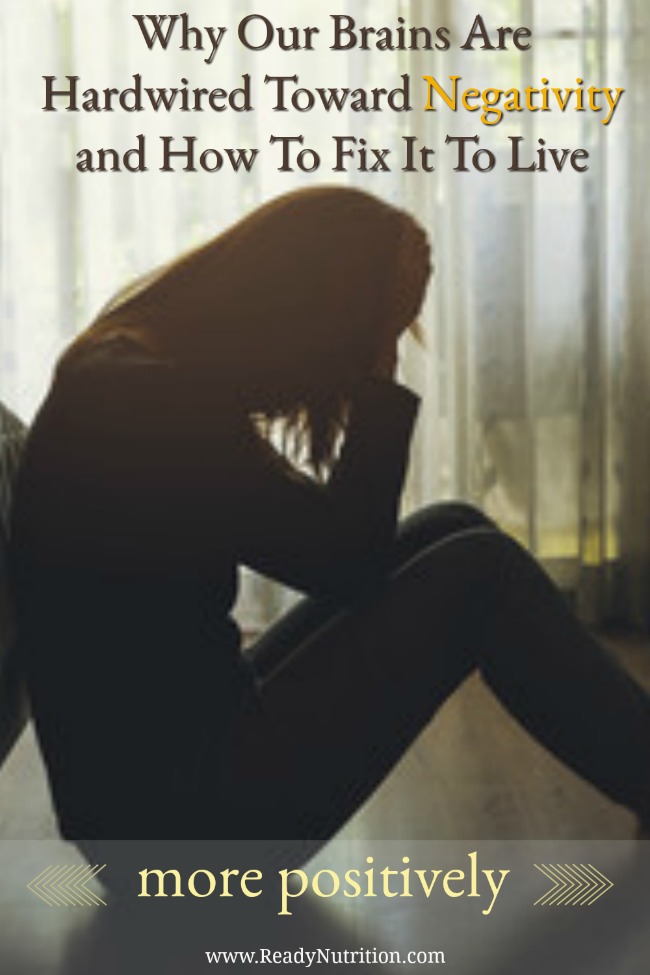Human beings are hardwired for negativity and our brains fixate on the bad over the good. This can cause unnecessary stress and health issues but there are some things we can do about it, so we can live a more positive and vibrant life.
Criticisms often have a greater impact than compliments and bad news frequently draws more attention than good. All you have to do is turn your TV on to a news channel to see the evidence of this! The reason the news focuses on the bad is that negative events have a greater impact on our brains than positive ones. Psychologists refer to this as the negative bias (also called the negativity bias), and it can have a powerful effect on your behavior, your decisions, and even your relationships.
Also known as positive-negative asymmetry, this negativity bias means that we feel the sting of a rebuke more powerfully than we feel the joy of praise, according to Very Well Mind. This psychological phenomenon explains why bad first impressions can be so difficult to overcome and why past traumas can have such long lingering effects. In almost any interaction, we are more likely to notice negative things and later remember them more vividly.
This negative bias causes us to pay more attention to the bad things that happen than the good. This cultivates stress and causes us to make our decisions based on the bad as opposed to basing them off of the good. Our tendency to pay more attention to bad things and overlook good things is likely a result of evolution. Early in human history, paying attention to bad, dangerous, and negative threats in the world was literally a matter of life and death. Those who were more attuned to danger and who paid more attention to the bad things around them were more likely to survive.
But how do we overcome this inherent negative bias that can kill relationships, stress us out, and make everyday life more worrisome? It isn’t easy. But it begins with stopping all negative self-talk. Start paying attention to the type of thoughts that run through your mind. After an event takes place, you might find yourself thinking things like “I shouldn’t have done that.” This negative self-talk shapes how you think about yourself and others. It’s best to just shut off that thought process as soon as it happens. Try to think of happier memories when you start to think negatively, Focus more on what you can learn from the mistake you made rather than the mistake itself.
When you find yourself interpreting something in a negative way or only focusing on the bad aspect of the situation, look for ways to reframe the events in a more positive light. This doesn’t mean you should ignore the fact that it’s a bad situation, it just means that from the bad, good can also come.
Once something good does happen, savor the moment! Since we have a negative bias, focusing on the positive things that have happened to us will help us become happier and end the cycle of negative thinking. Stay in the moment for as long as you can when you’re happy and don’t let anything bring you down.
Happiness: What It Is, Why It Is Important, and How to Cultivate More of It
Being aware of the fact that we are all programmed to be negative will help as well. Taking a more mindful approach that involves being aware of your own tendency toward negativity and consciously elevating happier thoughts to the forefront of awareness. Just this one small step can boost your mental awareness and health and make everything around you better.

This article was originally published at Ready Nutrition™ on August 6th, 2019








This idea was seen in Psychology Today June 2003. Nothing new here.
We felt it was an interesting concept and a topic that may help those see why their thought processes gravitate toward negativity.